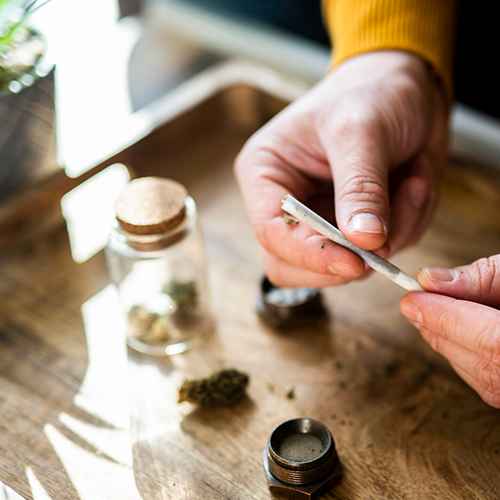Minnesota became the 23rd state to legalize cannabis for recreational use during the week of August 1, 2023. That means people 21 and older can now possess and use certain amounts of cannabis and cannabis products.
The conversation around cannabis is evolving. Dr. Gigi Chawla, chief of general pediatrics at Children’s Minnesota, discusses what this means for children and teens.
What message does legalizing cannabis send to kids and teens?
Now that Minnesota has joined a growing number of states to legalize cannabis for adult use, what message is that sending to kids? Does it make it sound like cannabis at age is safe and is it just like any other medicine?

Health care providers at Children’s Minnesota, like the American Academy of Pediatrics (AAP), are concerned about the effects of cannabis on young people, especially because they’re brains continue to develop until about age 25.
Throughout time, attitudes and laws about cannabis have changed, that is why researchers are constantly reviewing the latest science to offer clear, helpful advice to families.
Talk to your kids
We encourage families to talk to their children about the potential harm of cannabis. Treat these talks the same way you’d talk about other substances, like alcohol, tobacco and e-cigarettes, that are legal for adults but potentially harmful to kids.
What should families know about cannabis?
The effects of cannabis on the brain of young kids
Cannabis, or weed, has powerful effects on young brains.
School performance
Cannabis causes problems with memory, attention and problem-solving in kids – which can hurt school performance.
Car crashes
Cannabis can also affect judgment, concentration, reaction time and coordination. This can lead to car crashes. According to a Boston University study, the percent of crash deaths involving cannabis more than doubled from 9% in 2000 to 21.5% in 2018.
Addictive
Weed can in fact be addictive. There’s a belief that you can’t get hooked on cannabis. however, research shows that about 9% of all people who use cannabis develop substance-use disorder with cannabis, but for those who start in their teens, the rate jumps to 17%.
Physical effect
There’s also the physical effect to cannabis use. It can harm your child’s lungs. Just like tobacco, cannabis smoke irritates the lining of the mouth, throat and lungs. In fact, pot smoke has many of the same toxins and cancer-causing chemicals as tobacco smoke. The same goes whether smoking or vaping.
Should parents be concerned about THC edibles?
Last year, some THC gummies and other THC products were legalized in Minnesota. Many parents should be aware of the dangers of having THC products in the house and around young children.
This is because young children are the most susceptible to THC poisoning. According to a 2021 study, young children, especially those under 10 years old, were more likely to be admitted to the hospital and need respiratory support for THC exposure than older children.
How can parents keep kids safe from THC in their home?
For families who may keep and use cannabis or THC edibles in the home, they may wonder what they can do to keep it from their children. Here are some tips:
- Parents, relatives and other caregivers should set a good example and put children’s safety first. This means avoid using cannabis in front of kids.
- No one under 21 in the house should use any form of cannabis.
- Store safely – if cannabis and cannabis products are in the home, store them like medications or other dangerous products. Keep them out of reach of kids, or in locked cabinets. They should be in child-resistant packaging or containers.
Get additional tips on preventing THC poisoning in kids here.